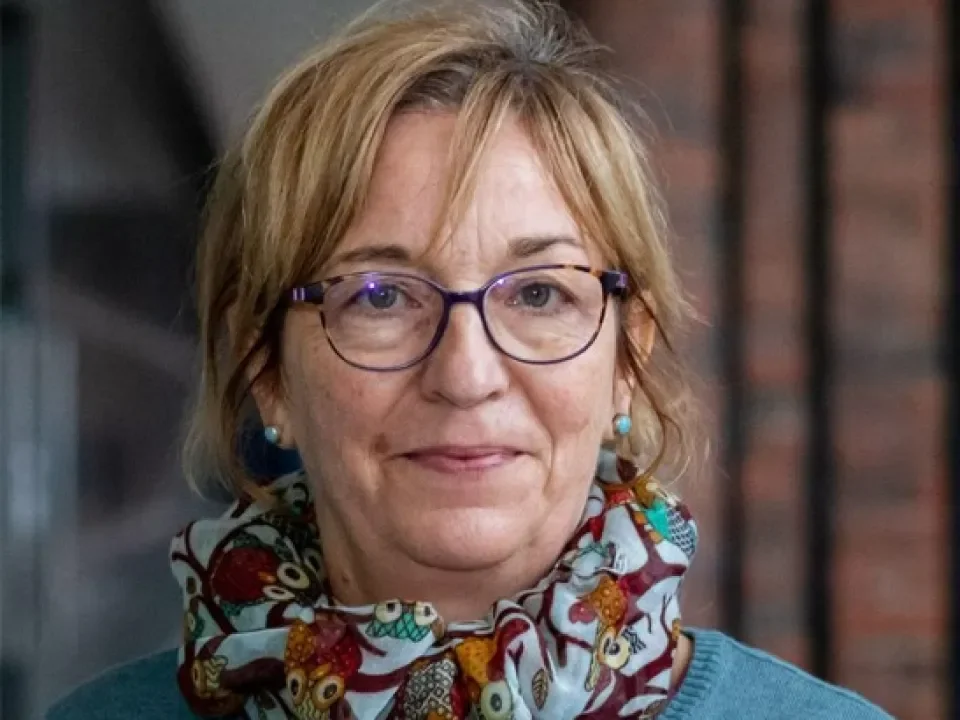
DCU Language & Culture Programme
Registration for Semester 1 (Autumn 2025) opens on 25 August and closes on 19 September 2025. All classes begin during the week of 8 September 2025. Eligible students will receive the link for registration on their DCU email.
-
Spanish SPA1021 Beginners (A1.1) This is the first module for beginners. You can register without approval from the programme coordinator.
-
Spanish SPA1025. Intermediate (B1.1) This is the first module for intermediate level. You can register without approval if you have completed your Leaving Certificate in Spanish.
-
Spanish SPA1028. High intermediate to advanced (B2.1). Yo need the approval of the module coordinator If you have not completed the previous module (juanpablo.aunon@dcu.ie).
-
French FRE1017. Intermediate (B1.1). This is the first module for intermediate level. You can register without approval if you have completed your Leaving Certificate in French.
-
French FRE1020 High intermediate to advanced (B2.1). Yo need the approval of the module coordinator If you have not completed the previous module.
-
German GER1022. Intermediate (B1.1). This is the first module for intermediate level. You can register without approval if you have completed your Leaving Certificate in German.
-
German GER1038 High intermediate to advanced (B2.1) Yo need the approval of the module coordinator If you have not completed the previous module.
🧑🏫💻 At the intermediate and advanced levels, the programme is delivered in a hybrid format:
The first three classes will take place on DCU's Glasnevin Campus, followed by online sessions, with the final class also held on campus. Classes are highly interactive and designed to encourage active participation.
For more information or advice in French and German advance modules contact the programme coordinator (elena.me.lopez@dcu.ie).
Do you still hesitate to register for a module?
See what the students have to say...
And hear what she has to say about the modules ...
| CEFR level | Comments | Languages offered at this level | |
| A1.1 | Absolute beginner. No prior knowledge of the language. | Spanish. Semester 1 | |
| A1.2 | Beginner. Basic communication skills to be able to talk about yourself and others. | Spanish. Semester 2 | |
| A2.1 | Elementary level of the language. | Not available | |
| A2.2 | Elementary & Low intermediate | Not available | |
| B1.1 | Leaving certificate exit level | Spanish, German & French. Semester 1 | |
| B1.2 | Leaving certificate H3 or Higher. Independent user | Spanish, German & French. Semester 2 | |
| B1+ | Independent user | Not available | |
| B2.1 | Higher Intermediate to advanced | Spanish, German & French. Semester 1 | |
| B2.2 | Higher Intermediate to advanced | Spanish, German & French. Semester 2 |
SPA1021 Spanish Language & Culture 1 (Level A1.1)
This module is aimed for students that have no knowledge of Spanish. Throughout the semester, students will perform individual and pair/group work to complete comprehension, production and interactions tasks to develop their language competence in basic matters of personal relevance (e.g. basic description of people, countries, likes and dislikes). In doing so, students will begin to develop some intercultural awareness of cultural differences in relation to these topics and a range of transferable and life-long learning skills.
SPA1022 Spanish Language & Culture 2 (Level A1.2)
This module is for students who have some very basic notions of the language (A1 CEFR) e.g.can introduce themselves or others in Spanish and talk about likes or dislikes and travel preferences. Throughout the semester, students will perform individual and collaborative work in small projects to complete comprehension, production and interactions tasks to develop their language competence in matters of personal relevance. e.g. shopping, talking about daily habits, food, and performing everyday transactions, for example, in a shop or in a restaurant. In doing so, students will begin to develop their intercultural awareness in relation to these topics, as well as a range of transferable and life-long learning skills.
SPA1023 Spanish Language & Culture 3 (Level A2.1)
This module marks the 1st of the elementary modules (A2 CEFR). Throughout the semester, students will perform individual and collaborative work to complete comprehension, production and interactions tasks to develop their language competence to allow the learner to talk about present, future and some past experiences. In doing so, students will begin to develop their intercultural awareness in relation to these topics, as well as a range of transferable and life-long learning skills.
SPA1024 Spanish Language & Culture 4 (Level A2.2)
The module will consolidate your knowlegde of the past through different topics such us talking about historical events, talking about your achievements in the past and other biographies, talking about the changes that occurred in a city among others.
SPA1025 Spanish Language & Culture 5 (Level A2+)
Throughout the semester, students will perform individual and collaborative tasks to develop their confidence and competence in spoken production and oral interaction in the target language while reinforcing their listening and writing skills. Students will develop skills that will help them source and critically evaluate cultural information about Spanish-speaking cultures and produce spoken and written texts directed to both Irish and Spanish-speaking audiences to raise awareness of cultural differences.
SPA1026 Spanish Language & Culture 6 (Level B1.1
This module marks the first of the intermediate modules B.1.1. Throughout the semester, students will perform individual tasks and a small collaborative project to develop their confidence and competence in the target language to introduce opinions and viewpoints about different matters e.g. leisure, cinema and TV, health issues, consumer products, inventions among others.
SPA1027 Spanish Language & Culture 7 (Level B1.2)
This module marks the second of the intermediate modules B.1.2 Throughout the semester, students will perform individual tasks and small collaborative projects to develop their confidence and competence in the target language to express emotions, opinions and judgements about different topics e.g. prediction for the future, social issues, cultural values, and emotions.
SPA1028 Spanish Language & Culture 8 (Level B2.1)
This module marks the first of the high intermediate modules B1+ /B.2.1. Thoughout the semester students will work on a collaborative project to develop their competence in the target language at the level of higher intermediate. In doing so, students will learn how express interests and feelings, show agreement and disagreement in various registers, arguing, express hypothesis and probability, assess situations and facts, comment on actions and behaviors. Develop projects of companies and services.
SPA1029 Spanish Language & Culture 9 (Level B2.2)
This module marks the second of the high intermediate modules B.2.1. Thoughout the semester students will work on a collaborative project to develop their competence in the target language at the level of higher intermediate. In doing so, students will continue to improve how express interests and feelings, show agreement and disagreement in various registers, arguing, express hypothesis and probability, assess situations and facts, comment on actions and behaviors. Develop projects of companies and services.
FRE1016 French Language & Culture 4 (Level A2.2)
This is an elementary module of French. Throughout the module, you will revise the basics of French language. Using games and fun activities you will develop your confidence in using the language in real communicative situations.There will be a focus on speaking skills while introducing you about the culture of the French speaking world. Adapted or authentic texts will be employed .
FRE1017 French Language & Culture 5 (Level A2+)
This module is designed for students who finished their leaving certificate and they would like to improve their oral skills. Thoughout the module, you will research and learn about French speaking countries. You will discover different expressions and accents from different countries that comprise the French speaking world. The focus will be on developing your language skills while expanding your understanding of the diversity of the French Speaking World. Adapted or authentic documents will be used
FRE1018 French Language & Culture 6 (Level B1.1)
This module marks the first of the intermediate modules B.1.1. Throughout the semester, you will perform individual tasks to develop your confidence and competence in the target language to introduce opinions and viewpoints about different matters e.g. leisure, cinema and TV, health issues, environment among others.You will start to show an ability to reflect on interculturality. Only authentic documents will be used.
FRE1019 French Language & Culture 7 (Level B1.2)
This module marks the second of the intermediate modules B.1.2, By the end of the module, you will be able to express yourselft in a variety of topics being able to express opinions, doubt, probablility and hypothesis at different register of the language. You will expand your knowledge of French speaking world developing your intercultural competence and understanding.
FRE1020 French Language & Culture 8 (Level B2.1.1)
This is the first of the high intermediate modules of French. In this module, you will be able to continue developing your language skills at a higher level of French to solve real world problems and to help you to engage spontaneously in conversations of a variety of topics. You will continue exploring the French-speaking world and cultures, By doing so, you will develop your critical thinking skills . Only authentic documents will be used.
FR1021 French Language & Culture 9 (Level B2.1. 2)
In this module, students will go to the next level: B2. This module will focus on using the language accurately to speak about various topics, including student's studies and future jobs. Some grammar points will be revised through activities and games. There will be a focus on oral, critical thinking, problem solving and culture, as always.
GER1022 German Language & Culture 5 (Level A2+)
This module is designed for students who have already studied German, but need to revise and practice more general communicative functions in German. For example talking about yourself or others, talking about daily habits, the house, living in the city, sightseeing, ordering in a restaurant, talking about food, work and education.
GER1023 German Language & Culture 6 (Level A2+/B.1.1)
This module is designed for students who already studied German. In this module we will discover the language and culture of Germany and German speaking countries. We will use the language (written and spoken) to communicate and train our language skills for intercultural everyday situations.
GER1024 German Language & Culture 7(Level B1.1)
This module will deepen the intercultural competence of the German learners. We will explore the language and culture of German speaking countries through authentic sources such as newspaper articles, music, literature and art. Students will learn to express themselves in written and spoken language on both familiar and more complex subjects.
GER1038 German Language & Culture 8 (Level B1.2)
In this module we will use the target language to express ideas and concepts in both informal and professional settings, situations. We will look at different characteristics of the German language and culture and how to demonstrate intercultural competence and reflective thinking while using the target language.
GE1039 German Language & Culture 9 (Level B2.1)
This module marks the second of the high intermediate modules B.2.1. Thoughout the semester students will work on a collaborative project to develop their competence in the target language at the level of higher intermediate. In doing so, students will continue to improve how express interests and feelings, show agreement and disagreement in various registers, arguing, express hypothesis and probability, assess situations and facts, comment on actions and behaviors. Develop projects of companies and services.
There is no formal examination in this programme. Your progression to the next level will be based on the completion of an E-portfolio, assessment of your language skills, and engagement in independent learning activities.
Portfolio
A portfolio is an individual piece of work in which you show evidence of regular practice between seminars, ability to reflect on cultural experiences (e.g. in the Languaculture Space), and on your ability to reflect upon your learning.
Language skills
Your reading, written, oral and listening skills will be assessed through a variety of tasks or project you will complete in your module.
Participation in independent learning activities. For example those organised in the LanguaCulture space
How can I register in the programme?
There are two registration periods for the DCU language and culture programme. Continuing students wishing to register will choose the code LC3000 in their registration options in August. Registration for 1st years, a window will be given to the students to register in November after an information session.
I am interested in taking a language alongside my programme but I am unsure which level to register for.
You should have your level assessed by the relevant language tutor.
Can I take more than one language in the programme?
Yes, you can study more than one language but not at the same time. For example, you can start with one language at a given level and then opt for a different language at a different level.
I am not a student of the new Futures Degrees, can I take a language course?
During this pilot phase, the programme is offered exclusively on the DCU Futures Degrees.
Do I need to follow the sequence of the nine levels of the programme to progress in the language of my choice?
No, your level of proficiency is the result of many different experiences you had learning that language both in the classroom, but also outside the classroom e.g you may spend time in countries where the language is spoken, attend special courses, or have other opportunities to use the language during your holidays, or with friends and family. All these factors may change your level of proficiency at any stage. If you are unsure about your level, you should have your level assessed by the relevant language tutor.
Do I have to sit an exam?
No, there is no formal examination. Yet, learning languages as practising sports needs training. Will you play a match of your favourite sport without training first? Probably not, since your performance will not be the same. It is the same when you are learning a language, you need to practise first to perform well. For this reason, you will need to show evidence of your practice throughout a portfolio.
What would happen if I fail? Can I study a different language?
If you fail the module, you can repeat the same module or you can choose a different language in the programme.
Can I change my choice of languages during my studies?
Yes, you can change your choice of language at any time. For example, you can start learning Spanish at an intermediate level for one year, and the following year you can choose to start a different language at beginner level.






